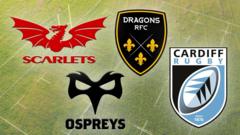Can You Really Please Everyone on Your Team?

Understanding the Dynamics of Coaching and Player Relationships in Football
In the world of football, the relationship between a coach and their players is pivotal to the team's success. Recently, Liverpool manager Gareth Taylor reflected on his management style during his tenure at Manchester City, particularly regarding his interactions with England forward Chloe Kelly. This discussion sheds light on how coaches navigate disagreements and maintain professional relationships with their players, a critical aspect of effective team management.
The Importance of Communication in Coaching
Effective communication is the cornerstone of successful coaching. Coaches like Gareth Taylor must articulate their strategies, expectations, and feedback clearly to players. When disagreements arise, as they did between Taylor and Kelly, how those conversations are handled can significantly impact team dynamics.
In Taylor's case, he emphasized the importance of staying "true to my role." This statement underscores the necessity for coaches to maintain authority while also being approachable. By striking this balance, coaches can foster an environment where players feel valued and understood, even during challenging discussions.
Handling Disagreements with Professionalism
Disagreements in a sports setting are inevitable. Players and coaches may have differing opinions on tactics, training methods, or game strategies. The key lies in how these disagreements are resolved. Taylor's approach is indicative of a professional mindset that prioritizes the team's overall success over individual differences.
- Maintain Respect: Regardless of the disagreement, respect should be at the forefront of all discussions. This ensures that both parties feel heard and valued.
- Focus on Solutions: Instead of dwelling on the disagreement, the focus should shift to finding a constructive solution that benefits the team.
- Encourage Open Dialogue: Creating an environment where players feel comfortable expressing their thoughts can lead to better outcomes and stronger relationships.
Building Trust Between Coaches and Players
Trust is a fundamental element in the coach-player relationship. When players trust their coaches, they are more likely to buy into their strategies and training regimens. Taylor's management style, particularly his ability to maintain professionalism during disagreements, likely contributes to building that trust. A coach who demonstrates fairness and respect in conflict resolution fosters a culture of loyalty and commitment.
Strategies for Building Trust
Here are several strategies coaches can employ to build trust with their players:
- Consistency: Being consistent in decision-making and communication helps players know what to expect, fostering a sense of security.
- Show Vulnerability: Coaches who share their own challenges and learning experiences can create a more relatable and trusting environment.
- Be Approachable: Maintaining an open-door policy encourages players to voice concerns or suggestions without fear of retribution.
The Role of Emotional Intelligence in Coaching
Gareth Taylor's ability to manage disagreements with Chloe Kelly speaks to the importance of emotional intelligence in coaching. Emotional intelligence involves recognizing one’s emotions and the emotions of others, which is crucial for navigating the complex dynamics of a football team.
Key Components of Emotional Intelligence in Coaching
Coaches can enhance their emotional intelligence through the following components:
- Self-awareness: Understanding one's emotions and how they affect team interactions is essential for effective leadership.
- Empathy: Recognizing and validating players' feelings fosters a supportive atmosphere.
- Social Skills: Strong interpersonal skills enable coaches to build rapport and communicate effectively with their players.
Lessons from Gareth Taylor's Experience
Gareth Taylor's approach to handling disagreements with Chloe Kelly offers valuable lessons for coaches at all levels. His commitment to his role as a leader while maintaining respect for his players exemplifies best practices in coaching. Coaches can learn from his experience by focusing on effective communication, trust-building, and emotional intelligence.
Implementing Taylor’s Lessons in Your Coaching
To implement these lessons, coaches can:
- Reflect on Your Communication Style: Assess how you communicate with your players and identify areas for improvement.
- Practice Active Listening: Make a conscious effort to listen to players' concerns and suggestions, validating their feelings.
- Encourage Team-Building Activities: Organize activities that promote camaraderie and trust among team members.
Conclusion
In conclusion, the relationship between a coach and their players is critical to the success of any football team. Gareth Taylor's experience with Chloe Kelly highlights the importance of effective communication, professionalism, and emotional intelligence in managing disagreements. By fostering trust and respect, coaches can create a positive environment conducive to success. As we continue to analyze the complexities of coaching and player relationships, one must consider the profound impact these dynamics have on overall team performance.
FAQs
How can coaches effectively communicate with players?
Coaches can foster effective communication by being clear, consistent, and approachable. Active listening and encouraging open dialogue are also crucial for positive interactions.
What role does emotional intelligence play in coaching?
Emotional intelligence helps coaches understand their emotions and those of their players, allowing for better management of relationships and conflicts.
How can trust be built between coaches and players?
Trust can be built through consistency, empathy, and by creating an approachable environment. Sharing experiences and challenges can also strengthen this bond.
As we reflect on the lessons gleaned from Gareth Taylor's experiences, consider how you can apply these insights within your own coaching or team dynamics. What strategies will you implement to enhance communication and trust? #Coaching #Football #TeamDynamics
Published: 2025-08-19 15:56:12 | Category: sport



